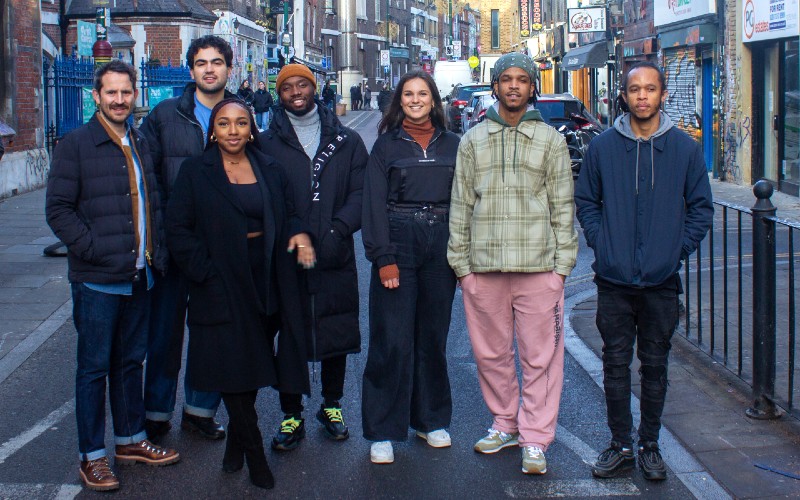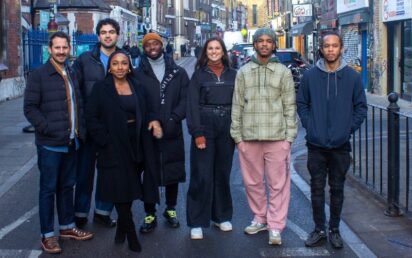There is an epidemic of poor mental health – and young men, in particular, are left vulnerable.
After her younger brother’s friend took his life in 2017, Ariana Alexander-Sefre says her brother refused school therapy and counselling. Then within a year, she saw two friends lose brothers to suicide.
Then working within the wellness industry, she saw how the multitude of effective, early-stage, preventative tools – such as therapy, mindfulness and CBT – did not feel culturally relevant or accessible for her brother and his friends.
She would go on to co-found SPOKE, a mental wellness app offering personalised, music-led audio sessions that are clinically proven to improve mental wellbeing.
The London startup works with a community of notable artists, producers and creatives to make taking care of the mind and emotions more accessible for the millions of people who love music and are currently missed out by traditional wellness.
“We help with everything from sleep and reduced stress, to building confidence in relationships and more,” Alexander-Sefre tells BusinessCloud.
“Our award-winning content has been developed with the UK’s best producers and rising artists – who have been trained by neuroscientists, psychologists and therapists to make looking after your mind as easy as listening to your favourite music.”
In a recent study of 8,000 16-24-year-olds, half said they felt persistent feelings of hopelessness. This has doubled in the past 10 years.
Alexander-Sefre has written many studies on the link between youth mental health, culture, gender norms and how we might be able to solve this systemic issue. In 2020 she won a scholarship to join a research master’s at the University of Cambridge to deepen this research, which she completed while building SPOKE.
She found a deep need for more cultural leaders – mainly musicians – to take the helm and help shape young people’s ideas of what it means to live well and grow awareness for better mental health.
“We have built a personalisation system that gets to know you and delivers the exact right session for what you need in the moment,” she explains.
“Our mission is to make important early stage mental wellness practices accessible and culturally relevant for the hundreds of millions who are underserved.”
Alexander-Sefre won the East London Innovator award in 2020 for social innovation, has given a TEDx talk titled ‘Can Music Save Lives?’ and raised £1.6 million for SPOKE.
“We plan to expand across the UK and into the US in the next two years, before expanding into new languages and regions,” she says.
“There are also plans to deepen personalisation AI to make it so intuitive and smart, your music becomes personalised to the extent it is able to build your resilience fast and predict behaviour. This will help to prevent someone from going into a crisis.
“In the near future we plan to raise a seed round, so we are meeting world-class consumer funds at the moment.”
On the wider music industry, she says: “It does not have any way to bake impact in; musicians are never trained in mental health by their labels and the only measure of success in the music industry is charts and sales.
“I believe that for an industry that can access the hardest to reach people in the world, more should be done around impact, but I also think we are a few years away from that becoming a normalised way of thinking.”
The ‘IndiePod Manifesto’ – 10 pillars for podcasting success


